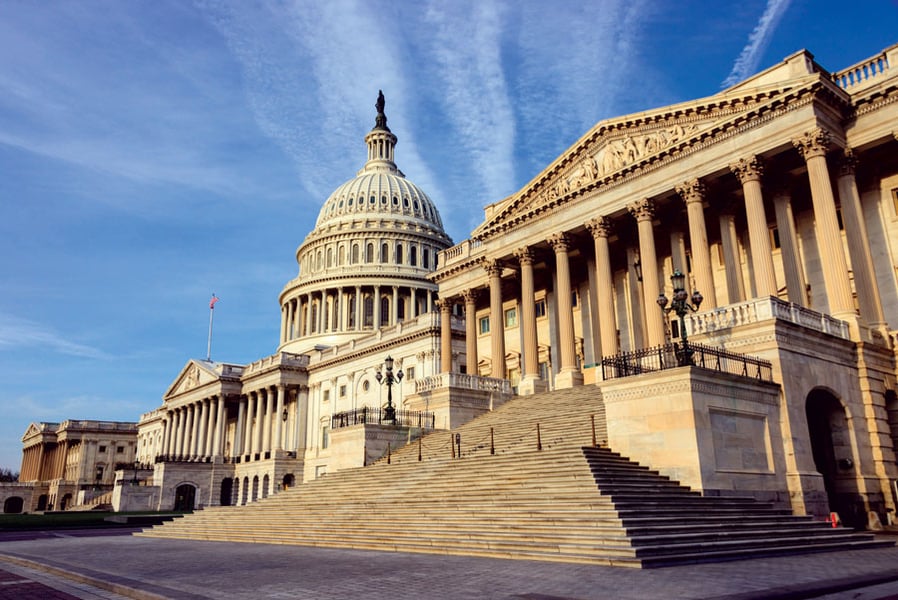

The House Ways and Means Committee approved legislation last week requiring small businesses to provide retirement plans for employees, but lobbyist groups say the measure could steer potential clients away from the advice industry.
The national auto-IRA legislation requires businesses with five or more employees to offer individual retirement accounts, akin to 401(k) plans, and would impose a tax on businesses that don’t comply. The measure also provides tax credits to offset the costs.
The state-level involvement, however, squeezes some financial advisers out of the planning process, according to industry groups like the Financial Services Institute. With accounts mandated by the federal government, the measure would effectively remove advisers that would otherwise be needed to create the retirement accounts themselves.
What is well documented is the millions of Americans that need significant help to hit their retirement savings goals. The median account balance for individuals aged 55 to 64 is $84,714, according to an analysis by Vanguard, a worrying data point. California, Illinois and Oregon have only collected about $300 million in total assets in state-facilitated retirement plans.
Retirement accounts at the national level must deduct 6% of wages from paychecks, rising to 10% over several years, and provide safe harbor for existing state-level auto-IRAs. FSI claims the measure doesn’t address the main cause of the retirement crisis: Americans simply don’t have enough money to save for retirement in the first place.
But if advanced, these bills may actually present an opportunity for retirement plan advisers, while also helping Americans reach financial security. The legislation is an opportunity to help small businesses sort out how to effectively, and cost efficiently, open IRA plans, and it could spur wealthy business-owner clients to seek help from their financial advisers.
The bill drew support from the American Retirement Association, for example, which cited estimates showing an additional 62 million retirement savers and $7 trillion in retirement assets if the bill passes into law.
While those benefiting from auto-IRAs would most likely be low-income earners, there would still likely be an influx of folks looking for advice. The bill may wind up generating more investment-advice clients, as they get into the habit of saving for retirement, and as their safety nets grow, so too does the need for additional guidance, wrote InvestmentNews senior reporter Mark Schoeff Jr. who reported on this issue in last week’s edition.
In fact, proponents of the rule and state-level action to build these auto-IRAs point to one overarching fact: Roughly a third of Americans don’t have access to a workplace retirement plan, a proportion that has remained stagnant for years, according to data from the Department of Labor.
That has been exacerbated amid the pandemic with four in 10 workers now reporting that their household experienced income or job loss in the past year, and half of those report feeling less confident they will have enough money for a comfortable retirement, according to an Employee Benefit Research Institute survey.
While the new programs has the potential to hurt some retirement plan advisers, there are still opportunities to get involved and help clients, especially small-business owners, navigate the proposed legislation. If nothing else, it could bring in trillions of net new assets into retirement accounts and help millions more Americans live comfortably in their golden years.

It's the mega-RIA firm's third $1B+ acquisition in just three months.

Wall Street leaders propose ways to monetize the mortgage giants.

Changes in legislation or additional laws historically have created opportunities for the alternative investment marketplace to expand.

A Texas-based bank selects Raymond James for a $605 million program, while an OSJ with Osaic lures a storied institution in Ohio from LPL.

The Treasury Secretary's suggestion that Trump Savings Accounts could be used as a "backdoor" drew sharp criticisms from AARP and Democratic lawmakers.
Orion's Tom Wilson on delivering coordinated, high-touch service in a world where returns alone no longer set you apart.
Barely a decade old, registered index-linked annuities have quickly surged in popularity, thanks to their unique blend of protection and growth potential—an appealing option for investors looking to chart a steadier course through today's choppy market waters, says Myles Lambert, Brighthouse Financial.
